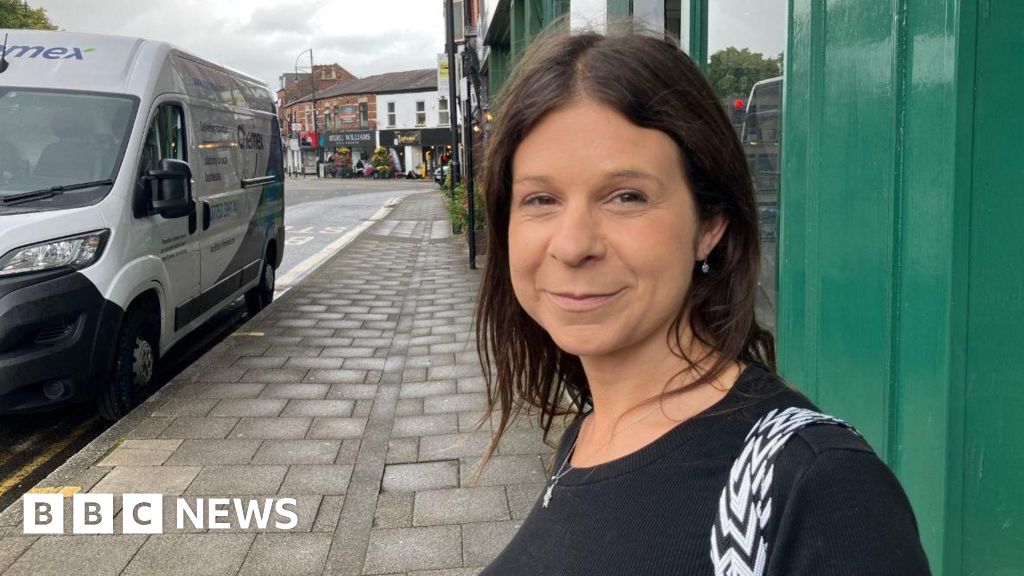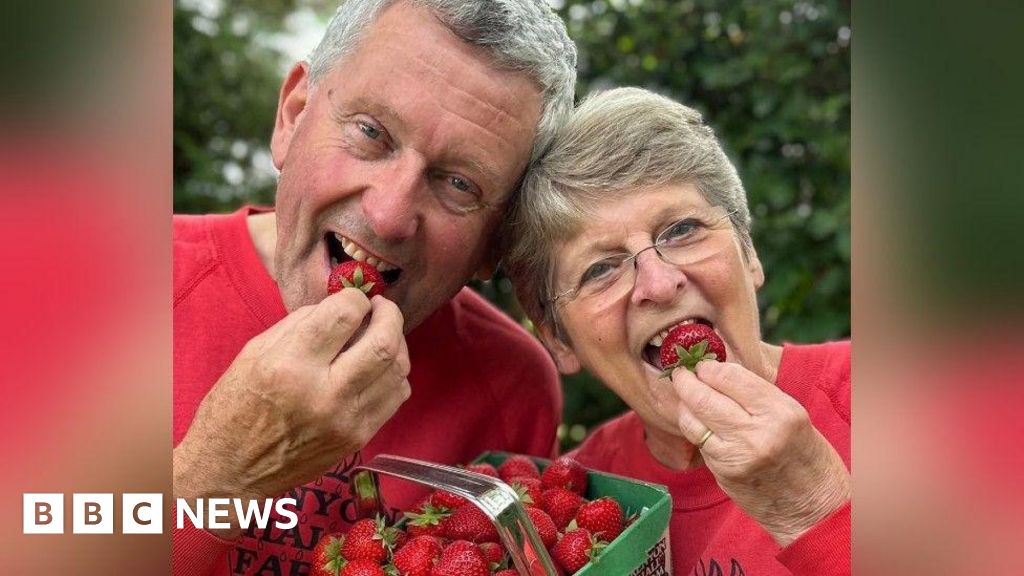News, North West
 Kenyon Hall Farm
Kenyon Hall FarmFarmer Tod Bulmer was one of the early adopters of a pick-your-own produce system at his family farm on the outskirts of Warrington.
Prior to 1978, Kenyon Hall Farm was a mixed farm with both crops and cattle.
But with a little one on the way, Tod was determined to “do something to gee up the business” and increase its turnover.
“It was a massive risk and it was something that was outside my knowledge…but it was something that we had enthusiasm to give a go to,” he said.
His parents and other workers on the farm were “sceptical but supportive” that the idea would bear fruit – in every sense of the word.
That year the family planted the first two acres of strawberries.
It was instantly popular with young and old alike.
“It’s a great, a wholesome activity for families to come and do,” said Tod’s son James, who returned to work on the farm 10 years ago after a career in IT.
“It reconnects people with their food.
“There’s a good education element to the children too, even if they don’t realise it and obviously the fruit tastes amazing as well.”
As its popularity grew, the farm expanded to more than 500 acres.
 Kenyon Hall Farm
Kenyon Hall Farm“To begin with, we were open for three weeks in the year and we made sure that that didn’t interfere with the smooth running of the rest of the farm,” said Tod.
“In the year 2000 or shortly after that, the ratio had to change in that we didn’t allow the main farming to interfere with the smooth running of the diversified bits, so the tables turned about then.”
‘Hard work’
The farm now operates various seasonal activities throughout the year including pumpkin picking and a maize maze as well as the opening of a farm shop.
This is while maintaining the more traditional side of farming including barley, oats, wheat and potatoes.
“Trying to make a living out of normal old-fashioned commercial farming whether you’re in livestock or arable is really, really difficult,” said Tod.
“It isn’t easy [to diversify].
“It’s hard work…but there is an opportunity for being in control of your own margin a little bit more.
“It’s a shame in some respects that farmers can’t just do the trade, that they have to diversify.”
Just under 50 miles away, nestled amongst the rolling hills of the Forest of Bowland is Lower Barker Farm in Preston, Lancashire.
This is the home of Lizzie and Rob Billington and their two daughters.
Lizzie’s great grandparents Annie and Richard Butler first bought Lower Barker in 1932.
They had a dairy herd of just 12 cows and started to build the family farming business.
 Lower Barker Farm
Lower Barker FarmNow, Rob works alongside his brother-in-law, John, and mother and father-in-law Ann and Andrew milking a Holstein herd of 450 cows.
But it was Ann and Andrew’s love of a post-milking gin and tonic that inspired the idea to start marking the popular alcoholic beverage.
“I knew we could do something with what the land has to offer here,” said Lizzie.
“It was just me really winging it in my kitchen with a little table top still and just distilling different components and going ‘wow, the flavour you can get from the common weed is unbelievable, I bet we can create a cracking product’.
While the Wild Fox Distillery is thriving, the dairy farming remains at the heart of what they do.
“It’s never changed and we’re really proud of that,” she said.
“It was purchased by our family in 1932 and my brother is now fourth generation and going from strength to strength.”
 Wild Fox Distillery
Wild Fox DistilleryBut while Lizzie understands the need for some farms to diversify, she does not believe this is the answer to all the challenges that farmers face.
“I think that’s a really important message,” she said.
“There’s definitely that passion to keep British farming going and we will keep British farming going – there is no option.
“We need to keep control of that and keep control of British farming. We produce the best food there is.
“We have the capability to look after ourselves.
“So with the support from everybody, not just the general public, but the government as well, we can flourish and thrive.”
You can watch more on this story on North West Tonight at 18:30 BST on Thursday 7 August.




